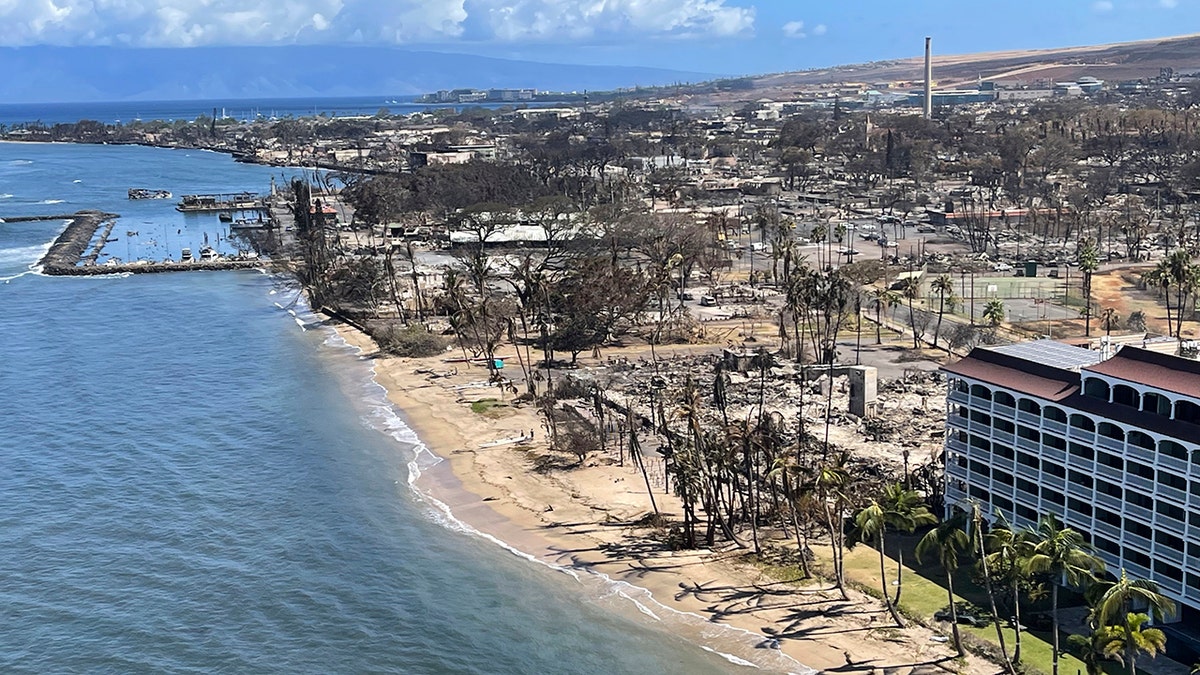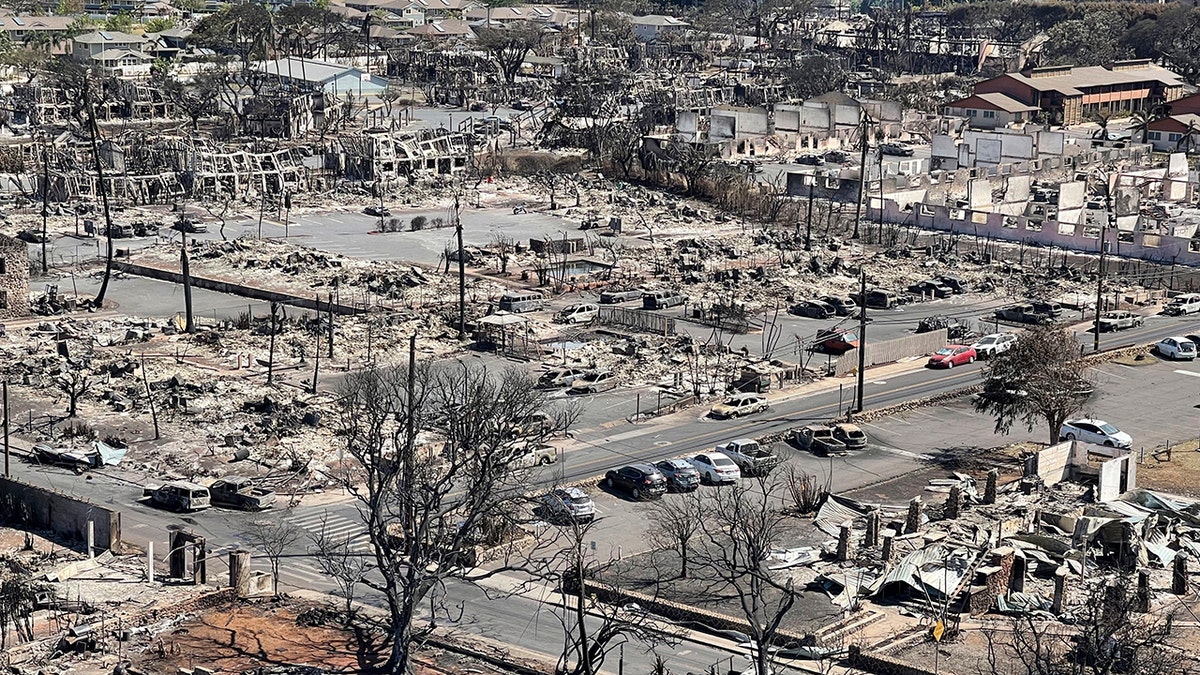Will Cain witnesses Hawaii wildfire damage by boat
Will Cain shares the stories of Hawaiian residents who are continuing to move supplies to help the struggling communities.
Hawaiian Electric was aware of infrastructure issues that could contribute to a wildfire threat but focused on shifting the company toward renewable energy rather than fixing problems, the Wall Street Journal reported Thursday.
The utility company concluded in 2019 that it needed to invest more in preventing its power lines from emitting sparks, among other issues. Consulting California's efforts to reduce wildfires, the company drafted a plan to install more insulated conductors, fire-retardant poles and more aggressive monitoring technology.
The company barely pursued those goals over the next two years, however, investing less than $250,000 on wildfire projects, according to the Journal. It did not request state permission to raise rates to pay for wildfire prevention until 2022.
Instead, the company found itself focused on a state-mandated shift toward renewable energy.

Hawaiian Electric was aware its infrastructure issues that could contribute to a wildfire threat, but it instead focused on shifting the company toward renewable energy, the Wall Street Journal reported Thursday. (Hawaii Department of Land and Natural Resources via AP)
"You have to look at the scope and scale of the transformation within [Hawaiian Electric] that was occurring throughout the system," Mina Morita, who chaired Hawaii's utilities commission from 2011 to 2015, told the Journal. "While there was concern for wildfire risk, politically the focus was on electricity generation."
Now, the company faces intense scrutiny regarding the role its power lines may have played in the deadliest wildfire in U.S. history, which is confirmed to have claimed the lives of 110 people as of Thursday.

Hawaiian Electric faces intense scrutiny regarding the role its power lines may have played in the deadliest wildfire in U.S. history, which is confirmed to have claimed the lives of 110 people as of Thursday. (Hawaii Department of Land and Natural Resources via AP)
When asked about its investments in wildfire protection, Hawaiian Electric pointed to the tens of millions of dollars it has spent on maintenance and tree work in Maui County since 2019, totaling about $84 million.
Witnesses who survived the fire in Lahaina also reported that Hawaiian Electric trucks were blocking roads that residents were attempting to use to escape the blaze.
Resident Cole Millington, 26, described "epic bumper-to-bumper traffic" in an interview with NBC News.
"There were no police officers in sight. What there was were Hawaiian Electric trucks coming in with new telephone poles," he continued. "Instead of waiting for everybody to get out, they were blocking the only way out with their big trucks."

